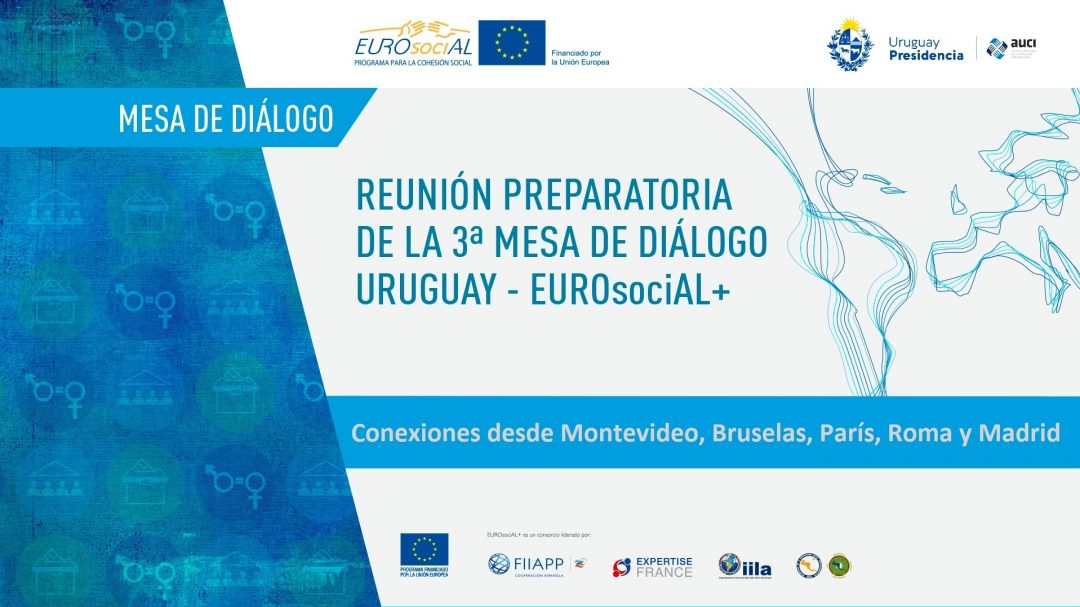The new government administration in Uruguay resulted in an encounter between national public institutions, led by the Uruguayan Agency for International Cooperation, and the European Union, to review joint lines of work within the framework of the EUROsociAL+ Programme.

The preparatory meeting for the third EUROsociAL+ round table in Uruguay, which for the first time was held virtually, laid the foundations for the strategic prioritisation of those public policies that, also considering the context of the pandemic, continue to contribute to improving the social welfare of Uruguayan citizens.
The executive director of AUCI, Mariano Berro, highlighted that “international cooperation is a subsidiary strategy to national public policies. It complements them and gives them a ‘value’. Therefore, we acknowledge the expertise and the significant contribution made by the European Union through the various programmes that are implemented in Uruguay, and specifically we want to highlight that made by the EUROsociAL+ Programme”
The head of European Union cooperation in Uruguay, Markus Handke, approached EU cooperation through the regional programmes present in Uruguay, supporting the coordination and complementarity between them. In addition,he launched two common challenges for both regions, such as “the digital transition, which the pandemic has highlighted even more; and the environment and climate change, which is very important to us with the European green deal. Both significant issues in Uruguay”.
Currently, there are 27 actions to support public policies in Uruguay, half of them regional, which reveal the importance the country has been given in this third phase of the flagship programme of the EU’s regional cooperation with Latin America.
Indeed, the director of the EUROsociAL+ Programme highlighted the added value of the regional cooperation approach: “regional cooperation facilitates regional integration, triangular cooperation and peer learning. The European Union has very valuable experiences to share regarding integration processes. “Either we will all come out from this crisis united/together or none of us will come out at all“, declared the EU High Representative for Foreign Policy, Josep Borrell. Under this approach, regional cooperation makes it possible to take advantage of synergies and economies of scale when addressing reforms in a multi-country manner, to strengthen networks, promote the dual role of many middle-income countries, such as Uruguay, as providers of experts and recipients of support based on knowledge”.
Teams from the Uruguayan Presidency’s Agency for International Cooperation, from the European Union Delegation’s cooperation section in the country, and from EUROsociAL+ through its three social policy areas in IILA, democratic governance in FIIAPP and gender equality in Expertise France, have exposed the main lines of joint action in matters such as active employment policies, public finances or the fight against gender violence, respectively.
The Country Dialogue Tables is an innovative EUROsociAL+ Programme methodology that has inspired the ‘Team Europe’ Covid Tables in Latin America. Uruguay was already a pioneer in 2018 in the implementation of this inter-institutional and multidimensional dialogue mechanism.
More information on the EUROsociAL+ website:
- Uruguay website: https://eurosocial.eu/uruguay/
- Country Report: https://eurosocial.eu/wp-content/uploads/2020/07/15_189_uruguay_julio_2020.pdf



